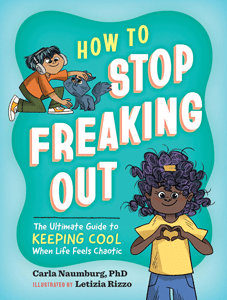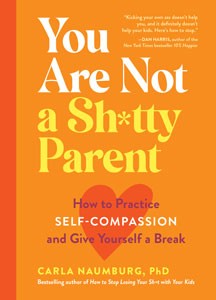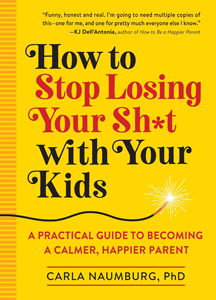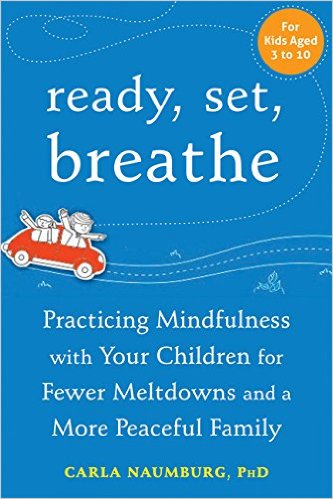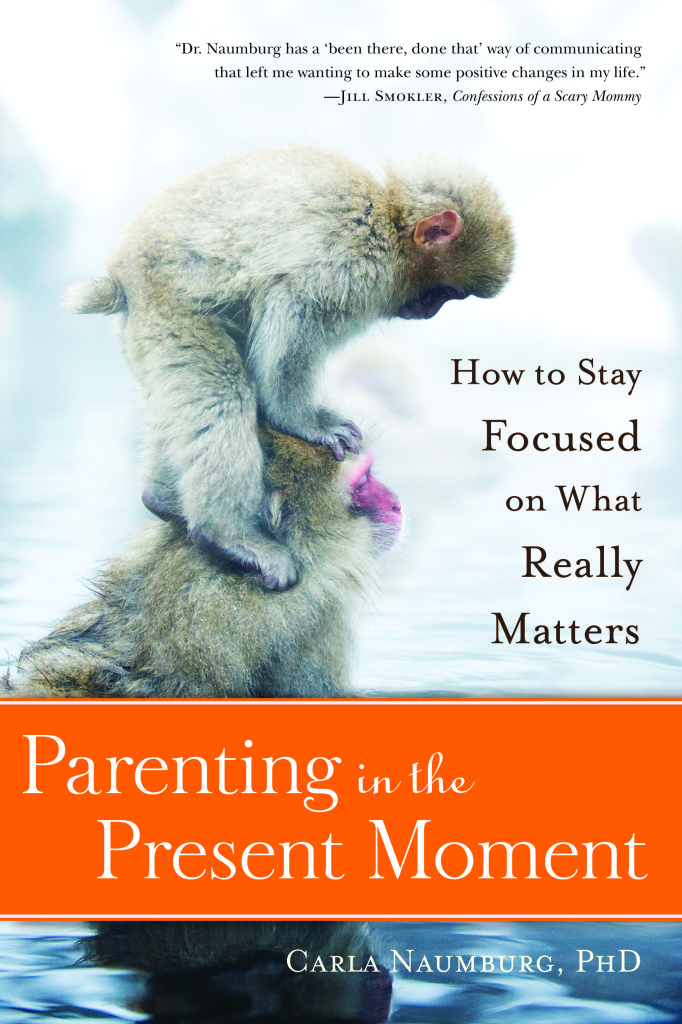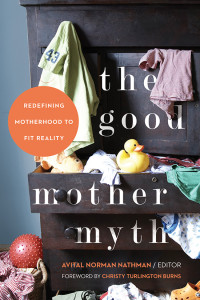I am so, so pleased and honored that an Italian journalist reviewed Parenting in the Present Moment. I have Italian roots and family in Northern Italy, so this connection is especially meaningful for me.
The original article can be found here, and my mother was kind enough to translate it into English for me, as I don’t speak Italian. (She tried to teach me. I refused. WHAT WAS I THINKING??)
A Pinch of Mindfulness
When the work of parenting becomes difficult, mindfulness can help. Some tips in a book by Carla Naumburg
by Valentina Murelli
It’s raining hard, we’re late for work with an important meeting scheduled, and our son has no interest in putting on his shoes and raincoat to go to kindergarten. We ask him nicely, then a second time in a more anxious tone, finally screaming like a madman. Maybe that will work. The child dresses and gets into the car. But often we feel a certain unease, a feeling that something isn’t right. Sooner or later, often more or less, all parents will lose their temper, or become exhausted trying not to lose it, or just functioning on automatic pilot. We understand this is not good. There is an alternative to this state of mind, and it’s called mindfulness, literally paying attention. This is a particular attitude, often used in psychotherapy as a method of stress reduction. It can even be helpful in the difficult business of parenting.
There is a book by the American Carla Naumburg (currently only in English), a social worker, blogger, and recognized expert in the field. Entitled Parenting in the Present Moment, it can be translated as Being Parents Here and Now, How to Focus on What Really Matters.
What exactly are we talking about? According to the definition offered by the OCS Center at University of California at Berkeley, a center dedicated to the scientific study of specific aspects of emotional and social well-being, it is a moment to moment understanding of our thoughts and physical health. It is concentrating on the present while avoiding confusing and chaotic thoughts relating to the past or future. It means acceptance, the ability to be attentive to our thoughts and feelings without judgment.
The roots are found in Buddhism and Zen. This may seem esoteric or new age. It is not and its practice may be separate from any faith, even religious. Studies have shown that in some cases it can have physical implications in strengthening the nervous and immune systems, thereby enhancing the quality of life. Now we may ask, what does this have to do with parenting? For Naumburg, this creates a more gratifying interaction with our children, responding with more understanding of their needs, and responding to them in a more coherent and less emotional way. Thus we are able to ignore the phantoms of the past and anxieties of the future.
The point is, when the child is born, whether we want it or not, everything becomes more complicated. Maybe the child is not sleeping or eating or doesn’t want the company of other children. Why is this opposition so irritating? So many why’s. Why do they fight with siblings? Why do they not like your friends or loved ones? We cannot comply with their every demand. We must recognize our own work, our aging parents, our memories of childhood trauma, and our constant fear of parental inferiority. In this Facebook is not helpful.
As Naumburg effectively communicates, there is a crazy monkey in our head jumping between what we have done and what we will do, always worrying and impulsive. The result is that we may exaggerate our responses to our children. We must learn to control the monkey, to focus on the here and now, to maintain a relationship with our children. To this, Naumburg does not offer preconceived notions or ironclad rules. She limits herself to three north stars. Mindfulness can help keep us on track.
The first star is to try to stay connected to our children. To be present, to make them feel secure, making them feel seen, accepted, loved and supported for who they are. Each parent will have his own way of understanding the character of the child at that moment. The author frequently emphasizes the difference between who the child is and what the child does. It is important to help the child understand she is unconditionally loved and supported.
The second star is to be aware and present to ourselves; mindful of our own needs and thoughts, our strengths and weaknesses. To be empathetic to others, we must be aware of ourselves. We must accept that we are not perfect. We are not horrible parents if we don’t want to make a perfectly balanced and freshly cooked dinner every night. We must take care of ourselves and our basic need of sleep. If we cannot do this alone, then ask for help from a partner, parent, friend, family member or babysitter.
The third star is to be present, to slow down and simplify life when necessary. This is done by not forgetting the key to mindfulness: to savor as much as possible every moment of our existence. Mindfulness can help follow these stars in daily life.
Naumburg offers a small acronym. STOP. Stop for a moment. Take a deep breath. Observe your thoughts and feelings. Proceed.
Also, WAIT. Why am I talking?
It seems simple, and the author knows this full well. To be present means to accept negative feelings like pain, anger and discomfort. It is to distance oneself from them so the crazy monkey does not invade one’s mind. One must practice daily. To parent is an everyday task which requires constant practice and learning.

